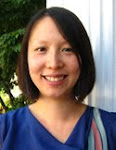The Harvard Premedical Society put on a terrific program last night featuring MD/PhD directors from four different programs: Cornell/Rockefeller/Sloan-Kettering, Washington University at St. Louis, Baylor College of Medicine, and Harvard-MIT. Here are some things that I took away based on the directors' opinions:
Basics
- Types of research possible: (a) basic research, (b) disease-oriented research, (c) patient-oriented research, (d) population-oriented research.
- Keeping in mind the various levels of analysis (e.g. environment, body, molecular, etc.), a successful MD/PhD learns how to sync productively all these levels.
- Two pathways into the MD/PhD: (1) enter MD/PhD program directly from college, or (2) begin an MD program and apply for transfer into the school's MD/PhD program.
- A typical timeline is 2 years of the MD program (basic sciences with some research), then 3-6 years completing the PhD, and finally 1-2 years finishing up the MD (clinical work). (And then there are residency training and fellowships!
- MSTP programs are a subset of all MD/PhD programs. MSTP programs receive support from the NIH. They have been evaluated comprehensively on the quality of their training (to determine if it's valuable for the government to invest money in).
- What makes an MD/PhD different from an MD is an interest in the "why?"
- For the PhD component, find out which programs are good for the discipline you're interested in. This is important!
- Reputation of MD/PhDs: Clinicians say, "They're all basic scientists!" PhDs say, "They're all clinicians!"
- Pluses to the MD/PhD: Broad education and broad perspectives.
- Minuses to the MD/PhD: Long education and training, pressures placed on you by lab, striking clinical balance, and pressures on family.
- As an MD/PhD graduate, no one remembers your thesis research. The benefit of an MD/PhD education comes in the form of training and mentoring.
- The most important quality of an accomplished research/applicant is being hardworking, not smart.
- MD/PhDs have the qualities of an MD (i.e. those that make a good clinician) plus dedication, talent, and performance in the lab.
- Students serious about the MD/PhD should consider doing summer research beginning the summer after sophomore year.
- Figure out which lab is the best for you. Once you have, be very involved in it over a significant length of time.
- In your application, you need to be able to tell a story about your science research.
- Contrary to popular belief, only about 15% of MD/PhD applicants have publications under their belts when they apply.
- Best advice: Apply early!
- Many of the same considerations of MD applicants (e.g. nature of a school's patient population, curricular differences, etc.).
- Some MD/PhD programs require you to have a lab chosen in advance of entering medical school; this varies between programs.
- Think about working with a wide range of faculty. If you are set on only one faculty member, what will you do if he/she leaves the school?
- These are many years of your life! Consider proximity to family, location, community, etc.
- With the final decision, trust your gut feeling.
- About 25% of MD/PhD graduates spend 75% or more of their time performing research.
- Since international citizens are eligible for institutional funding only, applicants should contact admissions and ask: Do you fund international students? How many matriculate into your program every year?
- 30-50% of MD/PhD students ultimately do their theses on topics different than those they had intended to pursue.
- Does an MD/PhD application hurt an applicant's chances of being admitted to the MD program? No, said the panel. But if an applicant is denied by the MD/PhD program and is really interested in the MD, they should be proactive, writing to MD admissions and asking to be considered.
- If there is a hole in your research (or other) experiences in your application, you need to account for this. For instance, a year of research without a recommendation letter from that lab would raise a flag.

